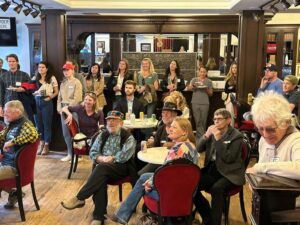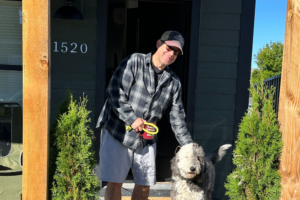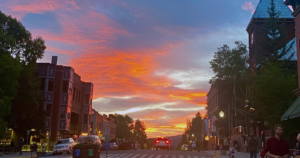The Denver Foundation, The Telluride Foundation, and ZOMA Foundation are pleased to announce the Rural Community Response and Recovery Project (RCRRP) to specifically address gaps in infrastructure and capacity that have made it difficult for rural Colorado communities to navigate the economic and humanitarian impacts of the COVID-19 pandemic.
Through this collaborative effort, nonprofit organizations that serve as community hubs will receive technical and financial support to build on their assets and better serve vulnerable people across rural Colorado. Working in partnership with an advisory committee of rural community development experts, the three foundation partners will provide grants to rural organizations that provide COVID-19 response programming and technical assistance to local agencies. Grantees will participate in a peer learning cohort facilitated by the Rural Community Funders Network.
“Beyond addressing the immediate needs of services organizations, through the thoughtful provision of technical assistance dollars and human resources, this program hopes to position those organizations poised to be community leaders in a stronger position to bring dollars into their communities to help recover and for greater resilience down the road,” says Paul Major, Telluride Foundation, President & CEO.
The first cohort of grantees includes organizations that represent Montezuma, Dolores, Pueblo, Summit, Weld, Yuma, and Washington counties as well as the San Luis Valley. After working with the initial cohort, the Rural Community Response and Recovery Project leadership will reflect and assess, with the goal of repeating the effort with additional organizations from across Colorado.
“The Rural Community Response and Recovery Project has given us optimism and hope,” said Lance Cheslock, Executive Director of La Puente Home in the San Luis Valley. “Rural communities are entering uncharted territory with the combined unknowns of COVID-19, faltering economies, state budget cuts, and both political and cultural turbulence. What the pandemic has taught us is that when we work collaboratively, we are able to meet gaps and needs in ways not possible standing alone. Through peer-learning we’ll expand each region’s ability to deploy urgently needed resources and become stronger in facing complex needs in the future.”
Responding to Immediate Needs, Long-Term Capacity
Rural areas have seen unique hardships during the COVID-19 pandemic. Job losses, under-resourced public health and healthcare systems, and the erosion of the overall economy have exacerbated existing financial troubles in many communities. The service organizations that support families with food insecurity, housing, and childcare have seen the demands for their services increase dramatically. Yet federal, state, and philanthropic response dollars have not flowed proportionately.
Many organizations that have traditionally provided direct service only are now being asked to step into leadership roles to help their communities access complex resources and adapt to virtual service delivery. By connecting organizations to the expertise of the foundation community as well as other members of the cohort, the Rural Community Response and Recovery Project will help organizations with these transitions. Examples include expanding abilities to deliver youth programming virtually, respond to enormous increase in food pantry demand, fundraise, access local lending programs, run operations remotely.
“People in rural communities are resilient and resourceful, but they face unique and daunting challenges during the ongoing global health crisis,” says Javier Alberto Soto, President and CEO of The Denver Foundation. “The Denver Foundation is honored to be a part of this collaborative effort that will tap into the strengths and assets of communities as they move towards recovery.”
Rural Response and Recovery Project Advisory Committee
Kyle Hybl, El Pomar Foundation
Tony Lewis, Donnell Kay Foundation
Paul Major, Telluride Foundation
Mike O’Donnell, Colorado Lending Source
Linda Reiner, Caring for Colorado
Javier Alberto Soto, The Denver Foundation
Ben Walton, ZOMA Foundation
Partner Organizations
Centennial Fund, Pueblo
La Puente Home, San Luis Valley
The Pinon Project, Cortez
Rural Community Resource Center, Yuma
Summit County Family Resource Center, Silverthorne
United Way Weld County, Greeley
For more information, please contact Paul Major, Telluride Foundation, paul@telluridefoundation.org, or Kelly Purdy, The Denver Foundation, kpurdy@denverfoundation.org.
About ZOMA Foundation
ZOMA Foundation was founded by Ben and Lucy Ana Walton to catalyze bold and innovative solutions to social issues facing their home regions of Colorado and Chile to help build resilient, thriving communities that will endure for future generations. ZOMA Foundation supports non-profit organizations to advance systems level alignment as well as pilot, incubate, and prove novel solutions in early childhood and community economic development.



